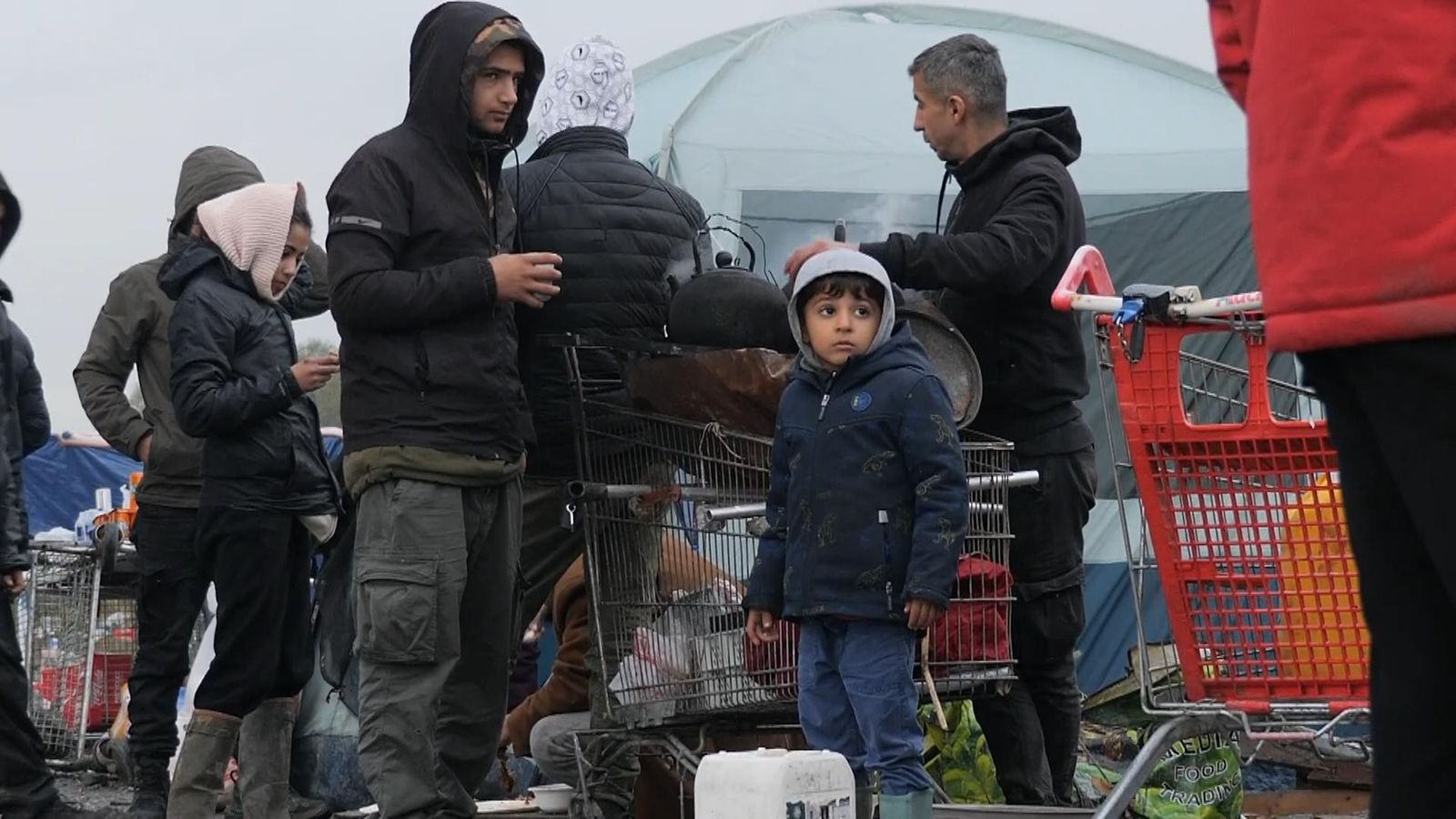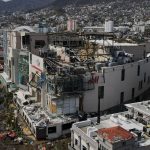By a road in Calais, a group of people sit and watch the traffic roll past. Their trousers are splattered with mud and water.
The rain is tumbling down in the grey of an early morning. It is cold and unwelcoming. Beyond the beach at Sangatte, the sea rolls ominously.
The group are all wearing coats against the weather, but most look ferociously tired. One young woman huddles beneath an unfurled sleeping bag.
In most seaside towns, they would look discordant and unlikely but here, on the northern French coast, everyone knows what’s going on. Another group who have tried to cross the Channel, and failed.
This time, it is a tale of a journey that never happened – the group were spotted by the police, intercepted and their boat slashed, rendering it useless.
“I will try again,” one man tells us.
“When?” I ask.
He shrugs slightly. “Maybe tonight.”
Among this group – Turks, Iraqis, Iranians and Kurds. All tell tales of fleeing in the face of persecution. There is, remarkably, an acclaimed filmmaker here, celebrating his birthday. Three days ago, he discovered he had won an award at an international festival. Now, he has just failed to get on a boat across the Channel.
There are tales of people who attempted previous crossings – once, twice, five, even seven times before. A man who was shot by ISIS in Mosul.
Most affecting, perhaps, twins from Iran – 25 years old and desperate to leave their country.
They had joined protests against the ruling regime and saw the violence that came as punishment. Hundreds left at least partially blinded by pellets fired by police. Friends who had been imprisoned, raped and even murdered as an act of revenge.
“I need to get away from Iran,” says Asrin, as her twin brother sleeps alongside her, sitting by the road. “Even life in the camp here is better than being at home – being persecuted, tortured and raped.”
And when you visit the camp in question, on the edge of Dunkirk, you realise what a significant thing that is to say. I’ve been there many times over the past few years, and it is a sorry place at the best of times.
But now, lashed with rain and dotted with puddles in which empty drink cans float around, it is utterly miserable. A place where nobody wants to be; a shanty town united by the single aspiration of getting to Britain.
“Yes, I live surrounded by rubbish, but that is what I have to do,” says Kamal, who left Kurdistan. “Some Europeans don’t understand – can’t understand – the suffering that we have gone through. If you understood that, then you would know why I’m here.” He looks about him at the squalor all around.
It is this determination that runs like a seam in these camps, and it’s why the Rwanda policy has never seemed to permeate here. We found plenty of people who’d heard of it, but nobody who said it had had any effect at all on their decision to try to reach Britain.
Take Sina, an Iranian who had fled those same protests. He was imprisoned at 18 and, at the age of 22, wounded in the neck by shrapnel. Another millimetre to the side, he was told, and he would probably have been dead.
Now, aged 23, he’s fleeing. If he were to return home, he’s sure he would be killed.
He asks me about the Rwanda plan, and I tell him about the decision of the Supreme Court – it’s the first time he’s heard.
“It’s the best news I’ve had today. It’s about human rights. It was a stupid thing to do and it never should have been done. I’m very very happy to hear that,” he said.
Read more on this story:
Rwanda plan ruled unlawful by Supreme Court
What is the government’s Rwanda plan and what will they do next?
Sina is hardly an unbiased observer – he would, after all, be at risk of being sent to Rwanda if the policy were ever to be enacted. But he does reflect an opinion that was unanimous among the people I spoke to.
Kamal, for instance: “Migrants are looking for safety – they’re searching for security,” he said. “The people in Rwanda are the ones who need help so why would you send migrants to a country where the people are already short of support and security?”
It is a disconnect, and a familiar one at that.
Talk to people in these camps, and they will tell you that they want to come to Britain to feel safe, to work, to see friends and family, to become educated and to escape fear. What they rarely seem to understand is just how politically toxic the debate is that encircles them.
The weather is dreadful. There are warnings of more flooding in the Calais region and one local I spoke to summed it up as simply “horrible – again”.
They are the sort of conditions where you want to be tucked up inside. But as you read this, a group of people will probably be preparing to try to cross the Channel in a small, unsuitable boat, powered by a lousy engine, captained by a novice.
For all the political rhetoric, the wave of migrants arriving in northern France rolls on.






















